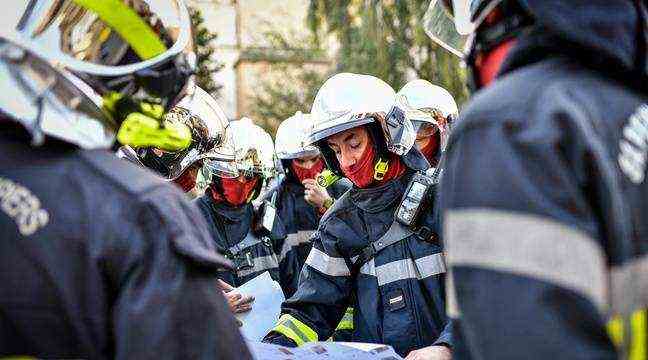For the deputy LREM Fabien Matras, bearer of the bill, the text will make it possible to found no less than “the Civil Security of tomorrow”. His colleagues in the National Assembly must also have thought the same thing when adopting it in a rare consensus. Parliament voted definitively on Tuesday in favor of the bill which sets up a series of measures for firefighters and the experimentation of a single emergency call number.
The objective of the text is to reform the relief chain. After a final adoption in the Senate, the National Assembly validated in the early evening this bill which responds to old demands of the firefighters, with a unanimous vote of the 123 deputies present.
A five-year term to achieve
During the debates, the deputies insisted in particular on the threats still posed by a European directive of 2003 on working time, sword of Damocles above the French model of Civil Security based mainly on volunteering, 80% of the 250,000 sappers – firefighters being non-professionals. Begun at the start of the five-year term, this reform, which intends to preserve this “model of civic security unique in the world”, will end in a few months of the presidential election. It received the competition and support of the powerful National Federation of Firefighters (FNSPF) before which Emmanuel Macron was able to test his popularity in mid-October, on the occasion of his 127th Congress.
The key to the “Matras” law proposal, more advantageous financial subsidies or easier access to social housing in order to retain volunteers, but also measures to strengthen the criminal response against the attacks of which more and more people are victims. firefighters. A mention “died for the service of the Republic” is created for public officials who died “in exceptional circumstances”, with the status of wards of the Republic for their children. The text also reforms “ambulance deficiencies”, namely non-emergency missions assigned to firefighters. The measure should also result in substantial savings for the departmental fire and rescue services (Sdis).
Tensions around the single number
The parliamentarians also considered the issue of the single emergency call number. This has been vilified by the “white coats” as being “a waste of luck” for the sick, against the backdrop of the fear that the pre-eminence of the doctor’s expertise may be called into question. However, if emergency responders defend the use of the “15”, firefighters consider that current practices have an increasing tendency to reduce them to the role of ambulance.
Deputies and senators seem to have found a point of equilibrium in a joint joint committee, certainly with the experimentation over two years of a single emergency call number, but also of two other models: a gathering without “police-emergency” (15th and 18th) and a grouping of Samu (15th) and on-call doctors, the SAS.

